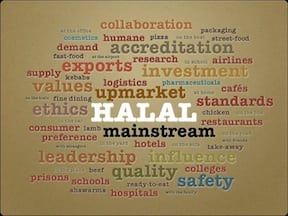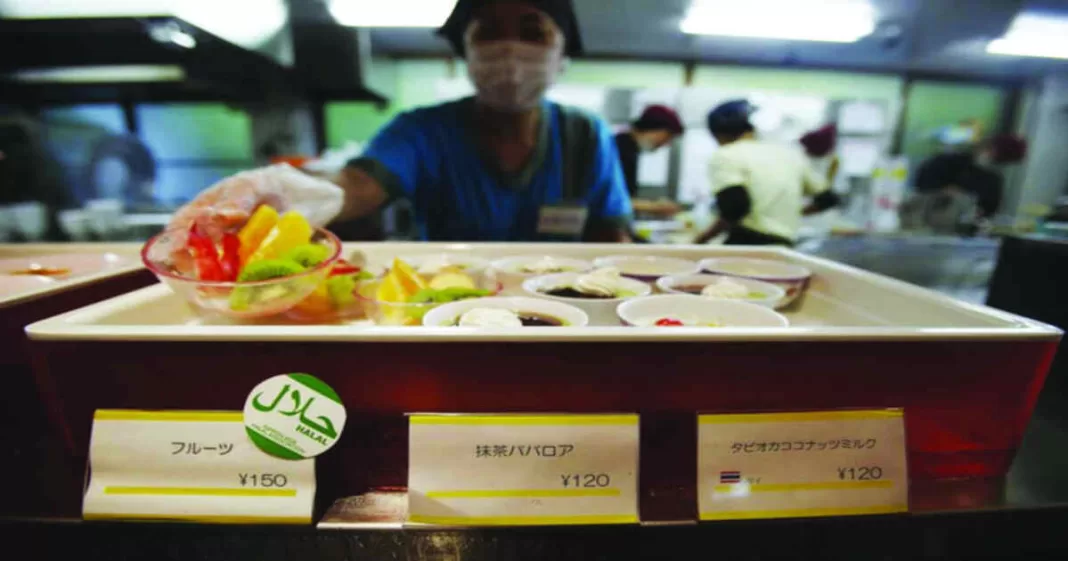by Rushdi Siddiqui & Tina Jamaluddin
Breaking News: “Nestle removes beef pasta meals after finding horsemeat. Nestle, the world’s biggest food company, has removed beef pasta meals from shelves in Italy and Spain after tests revealed traces of horse DNA.” — BBC News on Feb 19, 2013.
The Chinese new year of the Snake, seems to have become the year of Horse (meat). The year, 2013, did not start on a positive note for meat loving consumers in Europe with the mid-January announcement about Irish food inspectors finding horsemeat in some beef burgers heading for the UK supermarket chains.
This was followed almost immediately by announcement from the UK, Sweden and France that up to 100% horsemeat was found in several brands of frozen food.
In tracing the origins of the abattoirs responsible for contaminating the supply chain, it leads investigators across France to Cyprus to Netherlands to Romania and Luxembourg. The concern was the contamination seemed not to be accidental, but, rather the work of criminal conspiracy.
The world’s largest food manufacturer, Nestle, with a large imprint in the halal market, admitted that two of their beef products produced out of their factory in Italy and Spain contained more than 1% horse DNA. Furthermore, the possible source of contaminant was a supplier in Germany, a sub-contractor owned by JBS, the world’s largest meat processing company.
How does this affect consumer confidence in accepting the authenticity and integrity of the attached label?
Now, the entire supply chain, from the proverbial “farm to fork” is somewhat compromised, possibly not from a food safety perspective, but from an ethical and business standpoint. Nestle and JBS are listed No 1 and No 6, respectively, on the list of world’s largest food companies (by sales), and for all their food safety systems and standards, they still find themselves embroiled in this unfolding scandal.
The food retailers across Europe, with PR machinery in place, have firmly distanced themselves from the actions of their guilty suppliers, and have been adamant that they were as shocked as their customers by the discovery. Furthermore, the EU health ministers were quick to point out that while mislabeling is ethically questionable, the horsemeat contamination is not a food safety or public health issue, even though the equine drug Phenylbutazone, or bute, used on horses is not allowed to enter the food chain as it could pose a health risk in humans.
This leads back to the bigger question: how confident are we, as food consumers that we have not been exposed? Where does the “buck of responsibility stop?” The fingers are pointing to those making the larger profit margins, major food retailers have to bear some of the responsibility. Furthermore, it would appear they are constantly squeezing the supply manufacturers to produce cheap products while improving their own bottom line.
While eating horsemeat may be considered taboo or even unethical or unsavory in some parts of the world, Muslims are not prohibited from eating horse and camel if the animal is slaughtered in accordance with strict Islamic practices. However, the worry for Muslim consumers, who readily eat non-certified halal meat products with the justification that “as long as it’s not pork”, is that during the same testing process, food inspectors have also discovered minute traces of pork DNA in some beef frozen foods.
For example, Waitrose’s brand of British meatballs showed they contained some pork. Even some Halal meat pies produced in the UK were found to have traces of porcine DNA. The word distressing is an understatement for Muslims relying on truth in labeling by the name brand companies!
The potential fallout could be massive and will shift the mindset of Muslim consumers worldwide who already face challenges of finding halal food products on supermarket shelves. While the contamination of pork DNA in meat products might not be deliberate, traces of pork DNA may be the result of ultra sensitive DNA testing, which can detect traces at minute levels and will be evident in factories that also produce pork-based products or get their raw materials from abattoirs that slaughter pigs.
The implications of such a scenario are crap shoot “roll the dice” (willing to chance it) versus capital equipment expenditure. Thus, going forward, this means that non-halal manufacturers, who produce halal products, will either have to have dedicated factories for halal products or they might consider dropping the product altogether.
Today, not one halal company controls the entire supply food chain. It is well-known and accepted that supply chains are long, challenging and complicated. Thus, given the scare of cross contamination and food safety issues, it is imperative that halal institutions and food manufacturers take up the challenge and convey to the public at large that their supply chains encompass the essence of halal.
There are two very important halal lessons to be learned from Islamic finance on (1) what not to do and (2) what to do during external financial shocks.
In both niche markets, Islamic finance as a subset of social-ethical movement (a subset set of conventional finance) and halal food as a subset of the “food industry” (although halal includes pharmaceuticals, cosmetics, logistics, etc), a “call to action” plan explaining the merits and value proposition is urgently required to address the external turbulence.
For the halal industry, the horsemeat fiasco is about the “trust and confidence” of the food supply chain being compromised. It is here that the halal industry can show the transparency and accountability of the food supply chain from “farm to fork.”
The halal industry has the opportunity to raise the transparency bar for not only itself, but, more importantly, for its conventional brethren.
Rushdi Siddiqui is global head, Islamic finance and OIC countries, Thomson Reuters and Tina Jamaluddin is ex-head of business and product development of PrimaBaguz Sdh Bhd.




